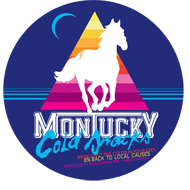Snowmobile Suspension Troubleshooting
Problem: Body rolls or dives in corners
Possible solution: Try adding preload to the front springs. If your snowmobile comes with a progressive wound coil spring, there might not be enough initial rate available without affecting ride quality at the mid and bottom of the stroke. Installing a single-rate spring or a more-effective dual-rate setup with adjustable ride height and rate is an effective solution. You can check your free sag as well, to ensure you are in proper ride height, front shock preload below to achieve free sag below:
- Technical Terrain Riding: 1" - 2" Free Sag
- Trail Riding/Semi-Technical Riding: 20% Free Sag
20% Free Sag Calculation: (Fully Extended Measurement) / 1.25 = 20% Free Sag
Problem: Snowmobile still wheelies and raises skis off ground
Possible solution: This is an indication of too much power transfer to the rear of the snowmobile with a fulcrum type effect. If you have already performed appropriate preload adjustment on the center shock AND set the snowmobile suspension tune for accommodating race/loaded sag (Step 5 in guide), try tightening the limiter strap by one position (skidoo/arctic cat) or adding 1/2 turn of tension to the front track shock (polaris).
Note: All snowmobiles have limiter strap adjustment and is the primary contributor to power transfer.
Problem: Sled tips up in corners, lifting the inside ski
Possible solution: Lower the front ride height to reduce the vehicle’s roll center. A sled with a lower center of gravity will typically outperform a vehicle that sits up high. Most roll or ski tip situations are generally related to excessive spring preload that was added to increase bottoming resistance.
Problem: Heavy steering
Possible solution: Heavy steering can be tricky to solve, and adjustments in the rear suspension often affect the cause. If you are experiencing this on a sled with stock skis and carbides, check the rear torsion spring setting, center shock spring preload, and possibly reduce the amount of coupling action. Make sure center shock spring preload is 5 to 10 mm. Typically, more preload to the center spring causes track spin, rear kick-up and a harsh ride. Remember, when you create load in the rear, the load is transferred to the front. In some cases more torsion spring preload will reduce load to the skis by holding the rider higher in the travel and away from the coupler stops.
Problem: Skis come of the ground when trying to accelerate out of corners
Possible solution: Make sure that your ride height is set correctly and you have good front to rear balance. In many cases we have found that increasing the rate of coupling or increasing rear track shock preload (which reduces weight transfer) transmits more load to the skis. Always make spring preload adjustments by 1/2 turn each time.
Problem: Front end raises up easily and then drops with little effort
Possible solution: One of the most common causes of excessive rear sag is a geometry-related issue such as the front torque arm limit strap is pulled in or the vehicle isn’t resting on a flat surface. It’s rare for a snowmobile to sag from weak torsion springs or shock springs. One of the most common misunderstandings is the shock has failed, causing excessive sag. The reality is a shock with a fresh charge may help a little bit, but it’s insignificant. Instead, check ride-height settings.
- Desired Sag: With the machine full loaded with all gear and rider, adjust your springs, torsion springs, or air to achieve 2 - 2 1/2" sag level








